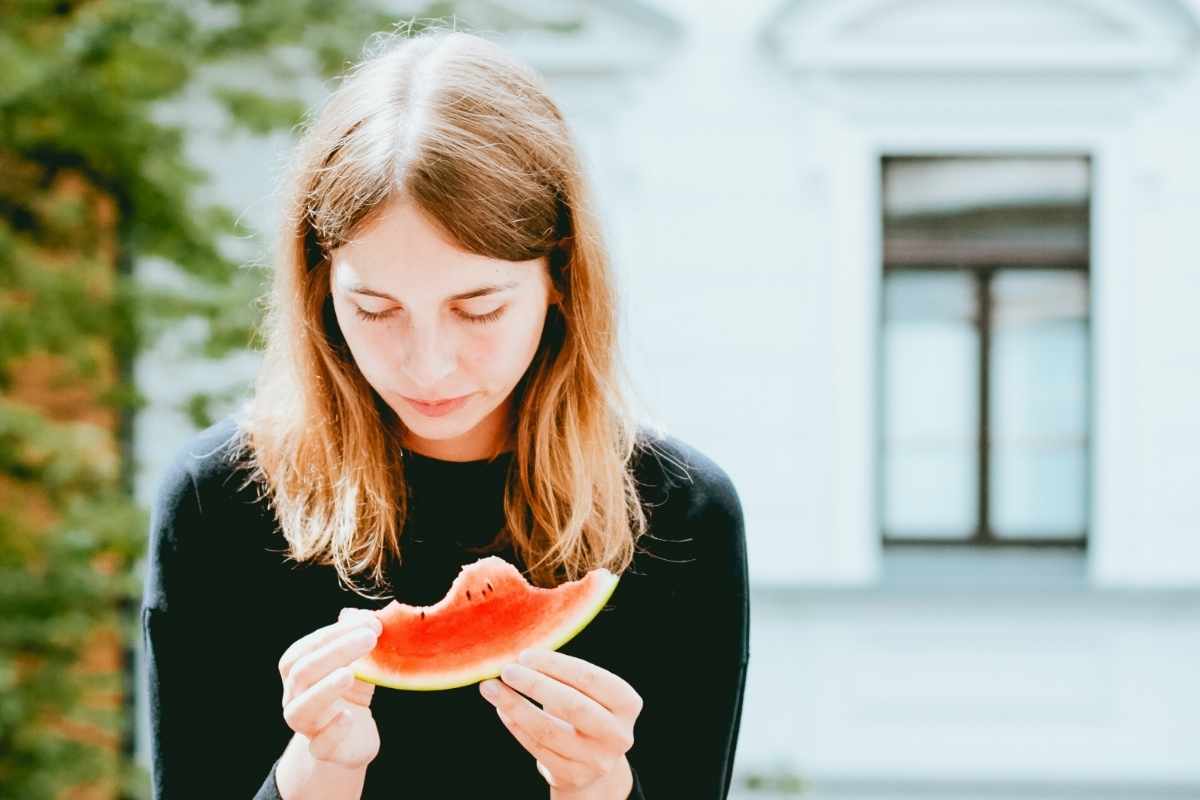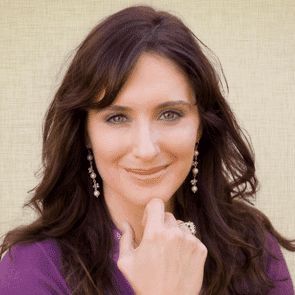How to Improve Your Relationship With Food With Karly Randolph Pitman

Here are the key takeaways from my interview with the founder of Growing Human(kind)ness and compassionate food expert Karly Randolph Pitman. We discuss ways to cultivate a relationship with food that uncovers underlying emotional needs and fosters self-compassion. Explore ideas on how to improve your relationship with food and why this is synonymous with healing yourself.
Food and the Mother Wound
Everyday stress, interactions with family, social media illusions, conflict, mother wounds—life itself—can give rise to many emotions. From loneliness to grief, these emotions affect our relationships with food. The holidays, in particular, bring up a range of emotions and a hunger for meaning, connectivity, and celebration.
“The relationship between food and attachment needs runs deep and is connected to issues of identity and worthiness.” – Karly Ranolph Pitman
How Is Food Related to Our Attachment Needs?
As humans, we are wired for connection: connection and attachment equate to survival. In our society, there is a hyper-fixation on self-reliance, so unmet needs for connection often show up in our relationship to food.
Connection and attachment give us a sense of belonging—that we matter. Connection creates a sense of safety in the brain that enables growth. It lets us feel safe to explore and express ourselves. While there is a need to be fed and sheltered, our emotional needs are to be seen, heard, and known. What happens when we feel separation or the threat of separation?
The brain tries to bridge the gap between the need and the underlying connection through our behaviors and eating patterns.
For many women facing the threat of separation, perfectionism steps in. It shows up as the need to have a perfect body or eat the cleanest diet. In another example, if we express anger in our family, and it leads to rupture, then we will learn to silence ourselves to stay connected.
Food and the Fear of Separation
We eat to connect or avoid separation. This can have many symbolic manifestations: we eat to stay close, mother ourselves, express joy, express unmet needs, care for a vulnerability or sensitivity, express power, individuate, and/or reject our upbringings. And, there is no threat of separation with food, like there might be in conflict or honest conversations.
“Food can seem like a safer way of caring for our needs and expressing ourselves.” – Karly Randolph Pitman
When we realize that the underlying fear of separation affects our patterns with food, we can bring tremendous compassion to ourselves. We can soften self-criticism and find support.
How to Improve Your Relationship With Food
1. Take Pause and Embrace Vulnerability
This wisdom gives us the insight we need to pause when emotions arise. Then, we can recognize how we need healing and where we fear separation. These moments are opportunities for growth: food is a powerful way to embrace vulnerability because of the connection to our underlying needs and desires.
Compassion in your relationship with food leads to self-compassion.
The paradox is that when we turn toward our pain, then we actually can provide our pain what it really needs. Bethany reminds us to “take in the magnitude of pain we endured, be a witness to it, the witness we didn’t have as a child, and be that loving person we need in response.”
2. Connect With Underlying Needs
Healing your relationship with food and self takes time. Karly offers some tips to get started:
- Find support. If you find that there is a time of day or circumstance that triggers emotions, ask for and find support. Get a phone buddy, go for a walk, or create a ritual.
- Practice the pause. When moderate cravings or emotions arise, practice pausing. Tune into the experience and ask, what does this part of me need?
- Try this Damage Control Tool from Emotional Brain Training. This is a simple practice to find calm when more extreme cravings or emotions arise.
- Find an outward expression for your emotions. Play, create art, dance. Move energy.
3. Allies on Your Healing Journey: Grief and Yearning
While the need for connection underlies eating patterns, a well of grief builds from the wounds we’ve accrued trying to avoid separation. On the other side of grief are perspective, vibrancy, and reconciliation with desire and yearning. The grieving process is what cares for the heart and yearning is what unveils the path toward healing. Let your heart guide the process.
How to Improve Your Relationship With Food: Integration Questions
- Notice the patterns in your relationship with food: is there a certain time of day or circumstance that leads to craving, overeating, deprivation, or any other food-related pattern? Start a journal to capture these patterns. If self-judgment, self-criticism, or perfectionism arise in ways that you are able to witness, also note these reactions to your patterns.
- Next time you feel a strong emotion arise relative to food, pause. Acknowledge what you are feeling. Then, practice finding the “moment of birth” at the moment: is there an underlying fear of separation or need for connection driving the emotion? Is something tender coming up? Do you feel vulnerable? If so, is there an opportunity to turn toward this fear or need and foster direct healing?
- Have you ever reached your “perfect weight”? If not, what if you did? Would or did reaching this weight solve your problems? Journal about how your focus on a “perfect weight” represents an underlying emotional need. How can you work toward healing this need and cultivating compassion for yourself?
- When you feel grief, let your heart guide the process. Underneath your grief, what are you yearning for? For example, if you feel grief around being raised with a disdain for cooking, does your heart yearn for joyous creation in the kitchen? Outline a path toward your heart’s desire.
- Practice a mantra when intense emotions arise, especially around food, such as “I use every step forward in my life to bring healing to the wounds I’ve accrued along the way.”
Resources
- When Food is Your Mother course
- The Heart of Food course
- Valerie Kaur’s “Breathe! Push! The Labor of Revolutionary Love”
- Tara Brach
- Dr. Gordon Neufeld
 About Karly Randolph Pitman
About Karly Randolph Pitman
Karly Randolph Pitman is a facilitator and expert that helps highly sensitive people create a more compassionate relationship with food through identifying underlying fears. As the founder of Growing Human(kind)ness, she helps others soften self-criticism and find wholeness.

 About Karly Randolph Pitman
About Karly Randolph Pitman


